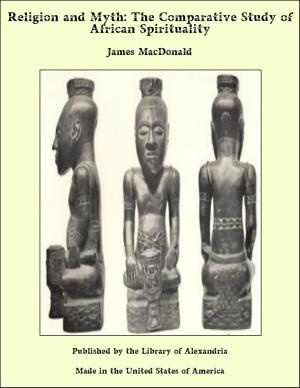| Author: | Anonymous | ISBN: | 9781465513878 |
| Publisher: | Library of Alexandria | Publication: | March 8, 2015 |
| Imprint: | Language: | German |
| Author: | Anonymous |
| ISBN: | 9781465513878 |
| Publisher: | Library of Alexandria |
| Publication: | March 8, 2015 |
| Imprint: | |
| Language: | German |
An unconscionable time a-dying—there is the picture ("I am afraid, gentlemen,") of your life and of mine. The sands run out, and the hours are "numbered and imputed," and the days go by; and when the last of these finds us, we have been a long time dying, and what else? The very length is something, if we reach that hour of separation undishonoured; and to have lived at all is doubtless (in the soldierly expression) to have served. There is a tale in Tacitus of how the veterans mutinied in the German wilderness; of how they mobbed Germanicus, clamouring to go home; and of how, seizing their general's hand, these old, war-worn exiles passed his finger along their toothless gums. Sunt lacrymæ rerum: this was the most eloquent of the songs of Simeon. And when a man has lived to a fair age, he bears his marks of service. He may have never been remarked upon the breach at the head of the army; at least he shall have lost his teeth on the camp bread. The idealism of serious people in this age of ours is of a noble character. It never seems to them that they have served enough; they have a fine impatience of their virtues. It were perhaps more modest to be singly thankful that we are no worse. It is not only our enemies, those desperate characters—it is we ourselves who know not what we do;—thence springs the glimmering hope that perhaps we do better than we think: that to scramble through this random business with hands reasonably clean, to have played the part of a man or woman with some reasonable fulness, to have often resisted the diabolic, and at the end to be still resisting it, is for the poor human soldier to have done right well. To ask to see some fruit of our endeavour is but a transcendental way of serving for reward; and what we take to be contempt of self is only greed of hire.
An unconscionable time a-dying—there is the picture ("I am afraid, gentlemen,") of your life and of mine. The sands run out, and the hours are "numbered and imputed," and the days go by; and when the last of these finds us, we have been a long time dying, and what else? The very length is something, if we reach that hour of separation undishonoured; and to have lived at all is doubtless (in the soldierly expression) to have served. There is a tale in Tacitus of how the veterans mutinied in the German wilderness; of how they mobbed Germanicus, clamouring to go home; and of how, seizing their general's hand, these old, war-worn exiles passed his finger along their toothless gums. Sunt lacrymæ rerum: this was the most eloquent of the songs of Simeon. And when a man has lived to a fair age, he bears his marks of service. He may have never been remarked upon the breach at the head of the army; at least he shall have lost his teeth on the camp bread. The idealism of serious people in this age of ours is of a noble character. It never seems to them that they have served enough; they have a fine impatience of their virtues. It were perhaps more modest to be singly thankful that we are no worse. It is not only our enemies, those desperate characters—it is we ourselves who know not what we do;—thence springs the glimmering hope that perhaps we do better than we think: that to scramble through this random business with hands reasonably clean, to have played the part of a man or woman with some reasonable fulness, to have often resisted the diabolic, and at the end to be still resisting it, is for the poor human soldier to have done right well. To ask to see some fruit of our endeavour is but a transcendental way of serving for reward; and what we take to be contempt of self is only greed of hire.















